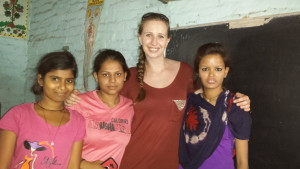Get in Touch
- J-9/13, Rajouri Garden New Delhi, India, 110027
- +91-9958207763
- sandy@s2immigration.co.in
India is the place to be if one is a foodie. The spices, the aroma and the variety of Indian food available will enamor you. One will be surprised at the variances in food from the North to South and the East to West. The temptation of trying all of these
results frequently in the famous ‘Delhi-belly’ (a painful stomach and diarrhoea). Hence, a little of caution is recommended when one indulges oneself with food.
The non-vegetarian side of Indian food comprises of many juicy, tender delicacies made with eggs, mutton (goat), chicken, fish etc. Stereotypically, North Indian’s love their chicken whereas the Bengalis from the East and the South Indians love their fish. If you are in New Delhi and you fell like trying the traditional north Indian food, I would strongly recommend Karim’s (the original restaurant is opposite Jama Masjid). Head to the restaurants in MajnukaTila for a slice of Tibet in Delhi. Oh! Calcutta is where you want to go for Bengali food, though going to Kolkata would be a strong recommendation if one wants a culinary experience encompassing a variety of food.
Vegetables are an integral part of Indian food and is consumed in a number of ways. For pure vegetarians, India is a heaven with the wide range of numerous tasty and nutritious vegetarian dishes. But watch out, Indians like their vegetable curries real hot ‘n’ spicy, hence be careful if you have a weak stomach.
Avoid street food if you can as hygiene and quality of water is suspect. While you will hear a lot about ‘golgappas’ or ‘phucckas’, try them only at shops where you are confident they use clean or filtered water and not on the street. ‘Phucchkas’ are crisp hollow puris(deep fried, hollow, crispy balls) filled with flavoured potato dipped in tamarind water.
Naturally only drink purified water. Boiling water is the safest way to go. Alternatively, use filters or buy mineral water in sealed packaging. Avoid buying cut and displayed fruit/vegetables from the street. It is hard to tell how long these have been kept in the open gathering dust and bacteria from the environment. Fruits and vegetables are best brought intact and food cooked or fried.
Avoid meat and fish from shops/dhabas on the street where hygiene and the quality of food is questionable. While travelling it is best to stick to vegetarian food or eggs, I have seen Indian friends do it to avoid risking stomach upsets. A way to deal with the spices in the food is to have yoghurt or curd with or after your food. It helps cool your stomach down. One can even have a yogurt formed drink in the form of a lassi instead.
If you are here in India for a short while and you want to get a taste of all the different cuisines from the different states I recommend going to all the different state bhavans (state houses)which run their own canteens with their local fare. Andhra Bhavan (Andhra Pradesh) in New Delhi has unlimited vegetarian food of good quality at affordable prices and is strongly recommended. Sikkim Bhavan, BangaBhavan (West Bengal) have interesting food and affordable fares.
Since there is a tendency to overcharge foreigners, it is best to stick to restaurants and shops which have fixed prices displayed. I have had friends being overcharged from road side dhabas and shops during their travels. However, the most important thing to keep in mind in India is hygiene when it comes to food. Always choose restaurants and shops which look hygienic and buy your ingredients from similar establishments. With caution, one can navigate and experience the plethora of food that India has to offer safely.
About the Author:
 Daniela Poellmann is an Austrian national who moved to Delhi in March 2015 after completing her Masters degree at the University of Sussex, UK. She previously worked on education and women development programmes in Uganda, Africa.
Daniela Poellmann is an Austrian national who moved to Delhi in March 2015 after completing her Masters degree at the University of Sussex, UK. She previously worked on education and women development programmes in Uganda, Africa.
Daniela is now working with the Indian NGO FXB India Suraksha. Stationed in the Delhi headquarter, she is engaged in developing and implementing programmes on child protection, violence against women and urban social development.